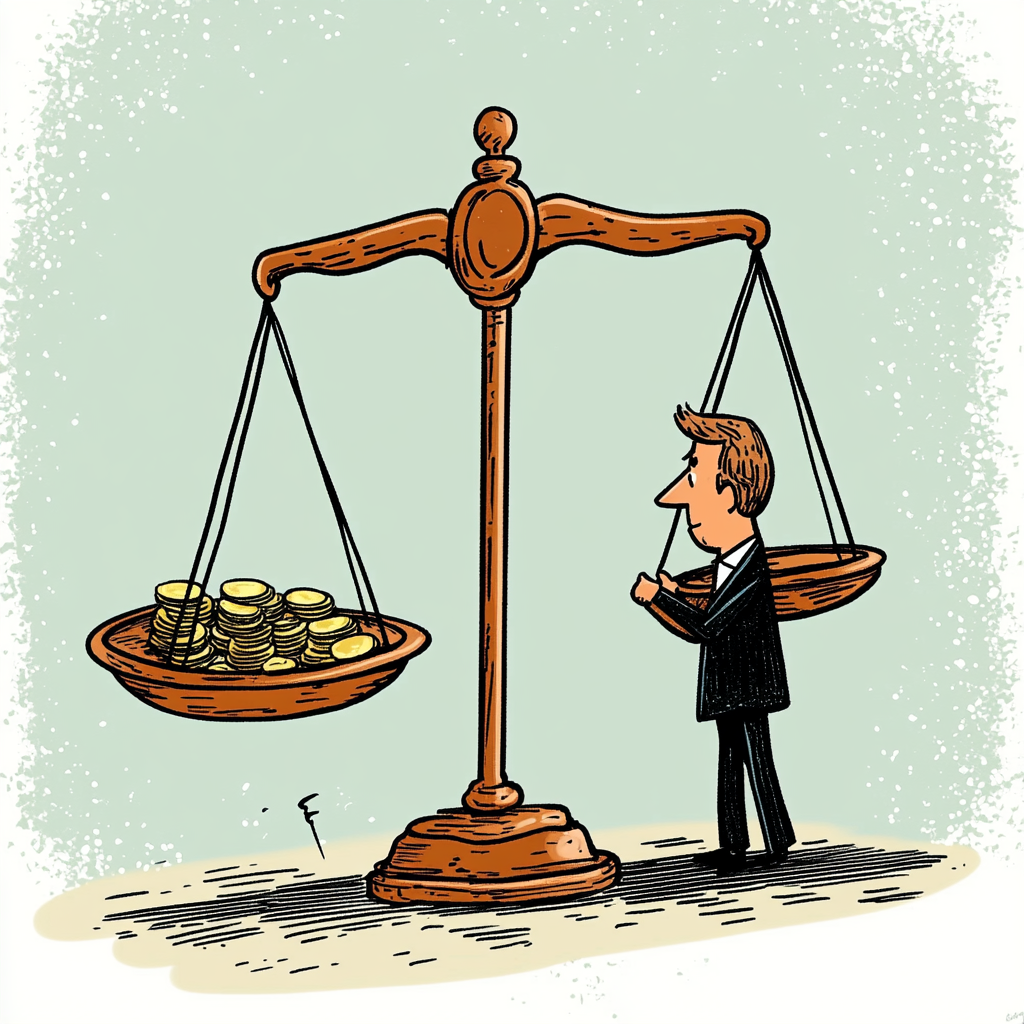The family Court scales are not even.
Australia's Family Court system, originally established to fairly and impartially resolve familial disputes, is facing growing public backlash over what many see as systemic misconduct, ethical breaches, and gender bias. Despite its purpose of upholding the best interests of children and families, many parents—particularly fathers—report feeling betrayed by a system that seems more adversarial than just, more drawn out than resolution-focused, and more concerned with technicalities and tactics than truth and wellbeing.
One of the most frequent and disturbing complaints within the family law system relates to legal representation. While lawyers are essential for navigating the complexities of the court process, countless individuals report being poorly represented, manipulated, or even misled. The Australian Capital Territory Law Society notes that family law consistently generates a high number of professional complaints against lawyers. Many parents have reported being pushed into unnecessary litigation, misadvised on parenting rights, or told outright not to bother pursuing shared custody—particularly if they are male.
This perception of gender bias is further echoed by well-known advocates such as Senator Pauline Hanson, Sue Price of the Men's Rights Agency, and Bettina Arndt, all of whom have drawn attention to the Family Court's treatment of fathers. Hanson, in particular, has led inquiries into family law reform, pushing back against a system she claims is weaponized against men. Their concerns reflect a recurring pattern: when fathers seek equal parenting rights, they are often met with disbelief, discouragement, or silence, while mothers—regardless of conduct—are more often perceived as the primary caregivers by default.
Despite the heavy reliance on affidavits and sworn testimony in court proceedings, false allegations and outright perjury often go unpunished. This troubling trend allows malicious parties to make unfounded accusations with minimal risk. The damage caused, however, is very real. Parents who are falsely accused may lose access to their children, suffer financial devastation, and endure lasting reputational harm. Yet, prosecutions for perjury in family law cases are vanishingly rare, allowing dishonest behaviour to thrive unchecked.
The psychological toll of this system, particularly on children, cannot be overstated. The adversarial structure of the court, the drawn-out timelines, and the lack of accountability foster an environment where children become pawns in a larger battle. Instead of fostering collaborative parenting, the system often deepens divides. Children who are removed from a loving parent may internalize the separation, believing they caused the absence, and begin to develop survival behaviours that impact their long-term emotional development. The research of trauma specialists like Gabor Maté and M. Scott Peck consistently points to the deep, often irreversible impact of early childhood trauma. The Family Court, rather than protecting children from such trauma, may inadvertently facilitate it.
While Kids are first programmes seem like a good educational resource for parent to understand how their actions impact a young child, it seems more of a tick the box to pleas the court with such destructive behaviour continues by parents through their legal representation.
This is not to say that there are never valid reasons to remove a child from a parent. In cases of genuine domestic violence, intervention is not only necessary but vital. However, what has become apparent is that false or exaggerated claims are too often used strategically, and when these claims are disproven, there is little to no accountability for the accuser. In a system where justice is supposed to be blind, the scales are too easily tipped.
While men bear a disproportionate burden in many of these scenarios, the broader impact is societal. Families are fractured. Children grow up disconnected. Parents are left emotionally and financially ruined. Productivity and mental health decline. The long-term cost to the economy and public health is enormous. Australia, often touted as the "lucky country," offers little luck to parents caught in this broken system.
International comparisons reveal a stark contrast. Sweden, despite a moderate divorce rate, emphasizes co-parenting, equal responsibility, and emotional wellbeing post-separation. Their approach leads to happier families, even after divorce, because the system is geared toward support, not punishment. Australia, on the other hand, often leaves families broken and parents abandoned—threatened with costs, gag orders, or even jail time simply for advocating to remain in their child’s life.
This is not merely a legal issue; it is a public health crisis in disguise. The generational damage being done to children, the unproductive grief forced upon parents, and the weaponization of legal processes against one half of a child's family unit all contribute to an epidemic of mental illness, disconnection, and despair.
The Family Court is in desperate need of reform. Not just at the procedural level, but at the cultural and ethical core. Until lawyers are held accountable for misconduct, until false claims are punished, until both parents are treated as equal unless proven otherwise, and until children's needs are truly placed first, the system will continue to inflict harm.
The question remains: who will stand up for our children, when the very institutions designed to protect them fall short?
If you found this post helpful and want to take your understanding even deeper, check out the Malicious Intent and Tactics Guide. It’s a practical, eye-opening resource designed to help you recognise patterns of manipulation, control, and emotional harm — especially in high-conflict separation. Whether you're navigating family court or simply seeking clarity, this guide offers the insight and tools you need to stay grounded, protected, and informed.
